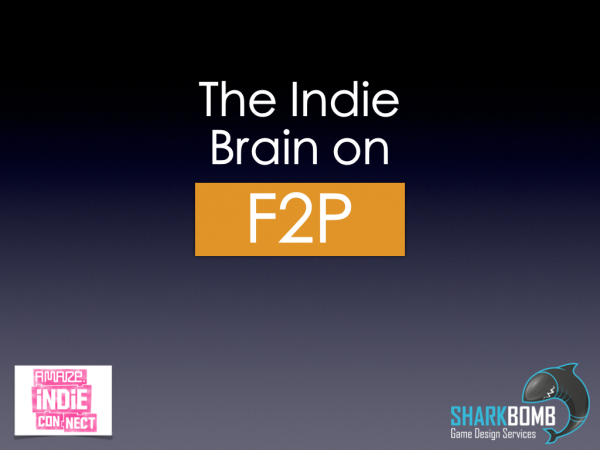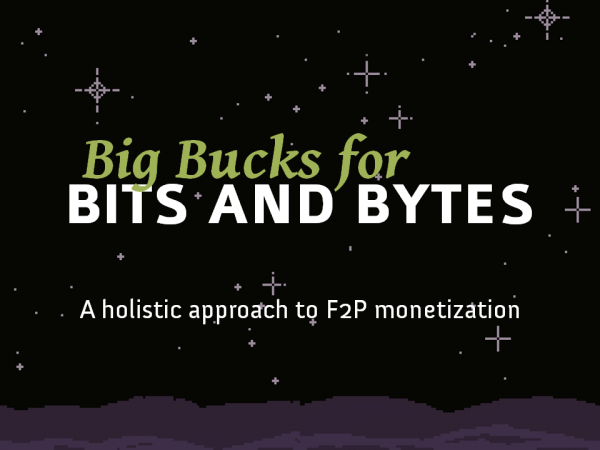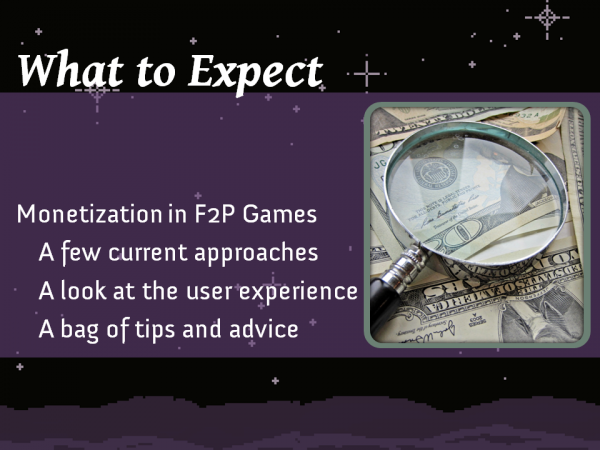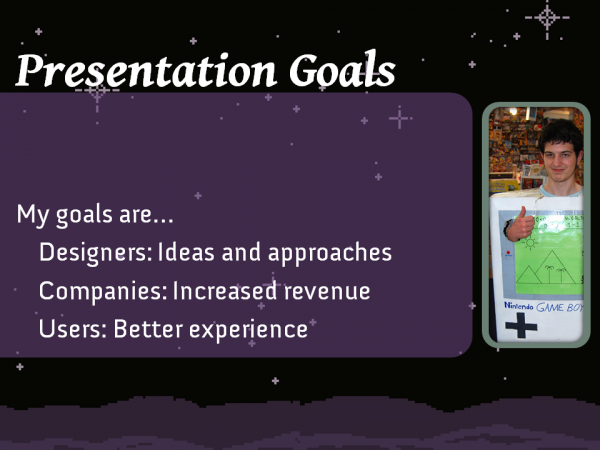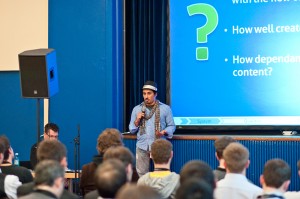Last Friday and Saturday the Browsergames Forum 2011 was held in Offenbach, Germany. As you can guess from the name of the conference it’s all about online games run in the browser with free-to-play being a big part of that equation.
I attended BGF last year with a talk about the qualities of virtual goods. While I didn’t have enough time beforehand to prepare another talk this time I was fortunate enough to sit on a Panel about the future of F2P monetization with:
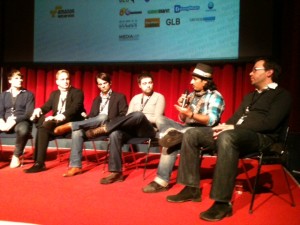
- Christian Godorr (Bigpoint)
- Henning Kosmack (MegaZebra)
- Egge Diercksen (Mail.ru)
- Janis Zach (Sponsorpay)
- Dirk Weyel
- and moderated by Mark Gazecki (Honeytracks)
I was quite happy with the panel and would have loved to focus even more on the potential developments in the F2P marketplace. I felt like we barely got started when we were already running out of time.
Apart from sitting in the panel I spent most of the time talking to old (and new) friends and colleagues. And if I wasn’t doing that I sat in the other talks and panels and tweeted as much as I could. So from the huge flood of #bgf2011 tweets, here are a few choice moments. Be aware that this is me reiterating what the presenters showed or talked about – there is room for error in there.
Future Trends in Social Games
Jussi Laakonnen – Applifier (@jussil)
- Slideshare Slide Deck
- Global gaming market advertising and virtual goods revenue prediction shown up to 2015, at which point 50% of all revenue is in facebook.
- As market contracts indies have to band together to succeed while keeping control of their own assets.
- Farmville allows you to find ingame friends that are not facebook friends. This is the Interest graph in contrast to the Social Graph.
- This means: avatars vs. real identity. Social game companies try to get their own data aside from facebook.
- Social graph = higher ARPU because of better retention and engagement.
- Communication among strangers (Interest Graph) may alienate regular casual audience: “Soccer moms don’t like being teabagged” What about anonymity?
- Googles only chance of making Google+ work is to win as a mobile social network.
- Valve will probably soon pop up on Android with Steam…
Next Generation of Online Games – Social and Core
Ilkka Paananen – Supercell (@ipaananen)
- Gunshine: By making the game harder the Monetization increased, as did satisfaction with users and retention went up
- Typical Gunshine player: 30min session, 4 times a day, 10 active friends.
- Social 2.0: users are *playing* with each other (not necess. synchronous) and making new friends
- primary monetization drivers of #Gunshine: Boss Battles, PvP #bgf2011
The Settlers Online – Key Learnings of Year 1
Christopher Schmitz & Benedikt Grindel – BlueByte
- “With a large amount of data a fool can justify anything”
Creation and Marketing of Browsergame IPs
Markus Büchtmann – ProSiebenSat1digital
- ~60% of people agree that branded products are of higher quality than unbranded products.
- Pro7 Games uses voiceover actors famous from related media products in their ads. For example: german Liv Tyler (Lord of the Rings actress) dub actor for fantasy game ad…
- Tv ads have IMMEDIATE effect on number of registrations: people have laptop/mobile device right next to TV (or watch on pc?)
The future of f2p?
Teut Weidemann – BlueByte
- Teut quotes Heiko Hubertz: next 5yrs. Traditional publishing model, mobile and beowser converge,market crunch, users switch games often
- Teut quotes Jessica Mulligan: higer consolidation, indy still possible, connected gaming more prominent, subscription for AAA MMOs
- Teut quotes Andreas Weidenhaupt: platforms willbe irrelevant, F2P will be dominant biz model, Web Games will look like retail.
- Teut quotes Michael Zillmer: all online games will be in browser. CPA will be > LTV. CRM more important. Main growth limit is HR.
- Teut quotes Ralf Adam: mobile connectedness = key factor. Localization key multiplier. Budgets will rise but cap.
- Teut quotes himself: saturation still 3-5 yrs away. Users are key(finding, keeping,crm,communities,roi important)
- Rift is designed with a backup transition to F2P already in mind.
- China is 5yrs ahead in F2P: user has too much choice Lack of content means users switch = drive to add content (6 mo at start)
- If COI rises, why not pay users to play our games? Online poker sites basically do that already
Panel: IP and browsergames – opportunities and pitfalls
Ralf Adam (Travian Games), Antony Christoulakis (Keen Games), Philipp Reisberger (Bigpoint), Jan Wagner (Cliffhanger Productions), Malte Barth (Iconicfuture) moderated by Heiko Klinge (Making Games Magazine)
- Antony: box product license simpler. Service model means contracts are more difficult.
- Ralf: just a limited number of IPs put there that make a good fit for games.
- Jan: sick of the dev-publisher model. No more. Spent company savings on shadowrun license (which is not AAA class).
- Jan: but company is small enough to be profitable with only a six figure user number. That is reachable with Shadowrun
- Malte: IPs are an argument when talking to VCs because that is something these non-techies know. But will look at terms closely.
- Jan: Game IPs are tough because audience knows what kind of game they want (unlike movies, pen and paper…)
- Philipp: getting approval for faces from female battlestar actors was harder than getting approval for ships from the company.
- Malte: IPs take too much time to sort out, not compatible with short dev and tech cycles. Instead maybe branded virtual goods.
- Ralf: Movie IPs are great for retail products: Release concurrent with premiere. Service games outlast movie popularity.
Analytical Creativity in Game Design
Christian Godorr & Stephanie Hels – Bigpoint
- First step was to have weekly meetings with all people to talk about what is happening in the game so everyone is in the know. Both qualitative and quantitative reports.
- Challenge with Drakensang: Low ARPPU for a core game. Figured out events increase that specific KPI
- Farmerama challenge: lifetime is unsatisfying. Events work, but Crafting adds depth. This leads to animal breeding mechanics.
- Farmerama user lifetime approaching more core-based game user lifetime. Nice! Good job, guys!
- When improving ARPPU first focus on high monetizing users so they have more cool stuff without breaking game for others. #bgf2011 #bigpoint
Non-Competetive Game Content
Kathleen Kunze – InnoGames
- What is the challenge in Farmville? Why do players play farmville, when there is none?
- Her theory: someone looks for a game that fulfills the needs (maslow’s hierarchy) that are not fulfilled in real life.
- Not all challenges are competetive! Riddles, growing plants, cooking, making music…
- Competetive content is not useless for non-competetive players: Medic, Healer is involved but wants to help, not kill.
- Meaning/quality of the result needs to be important to the non-competetive player nonetheless.
- You cannot satisfy everyone but you can open new audiences and expand the game.
And there you have it, my slice of the BGF talks. In general it seems that the topics mobile games and the interest graph were pretty important. Let’s see where they are at next year.

